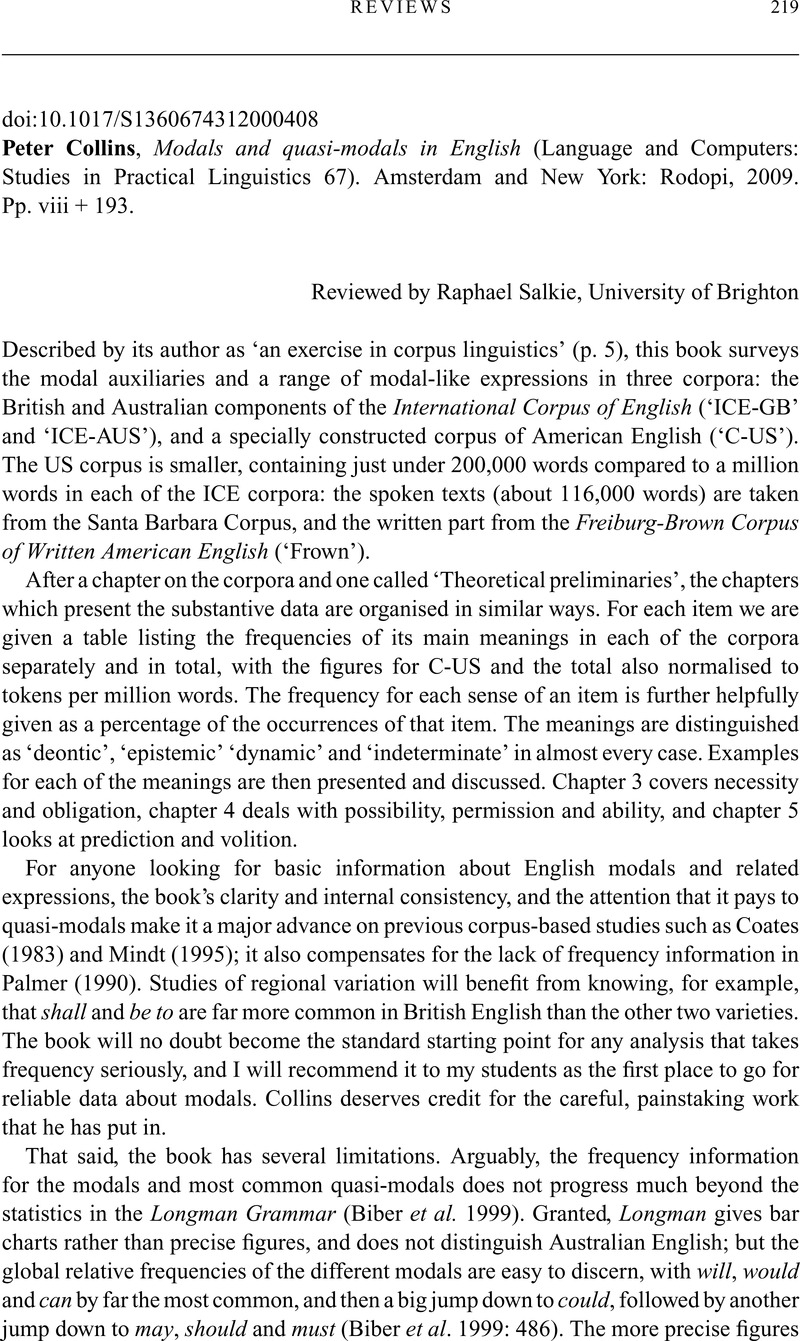No CrossRef data available.
Article contents
Peter Collins, Modals and quasi-modals in English (Language and Computers: Studies in Practical Linguistics 67). Amsterdam and New York: Rodopi, 2009. Pp. viii + 193.
Published online by Cambridge University Press: 11 February 2013
Abstract
An abstract is not available for this content so a preview has been provided. Please use the Get access link above for information on how to access this content.

- Type
- Reviews
- Information
- Copyright
- Copyright © Cambridge University Press 2013
References
Biber, Douglas, Johansson, Stig, Leech, Geoffrey, Conrad, Susan & Finegan, Edward. 1999. Longman grammar of spoken and written English. London: Longman.Google Scholar
Declerck, Renaat. 2010. Future time reference expressed by be to in Present-day English. English Language and Linguistics 14 (2), 271–91.CrossRefGoogle Scholar
Depraetere, Ilse & Verhulst, An. 2008. Source of modality: a reassessment. English Language and Linguistics 12 (1), 1–25.CrossRefGoogle Scholar
Huddleston, Rodney & Pullum, Geoffreyet al. 2002. The Cambridge grammar of the English language. Cambridge: Cambridge University Press.CrossRefGoogle Scholar
Nuyts, Jan. 2001. Subjectivity as an evidential dimension in epistemic modal expressions. Journal of Pragmatics 33, 383–400.CrossRefGoogle Scholar
Verstraete, Jean-Christophe. 2001. Subjective and objective modality: Interpersonal and ideational functions in the English modal auxiliary system. Journal of Pragmatics 33, 1505–28.CrossRefGoogle Scholar


